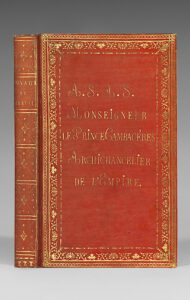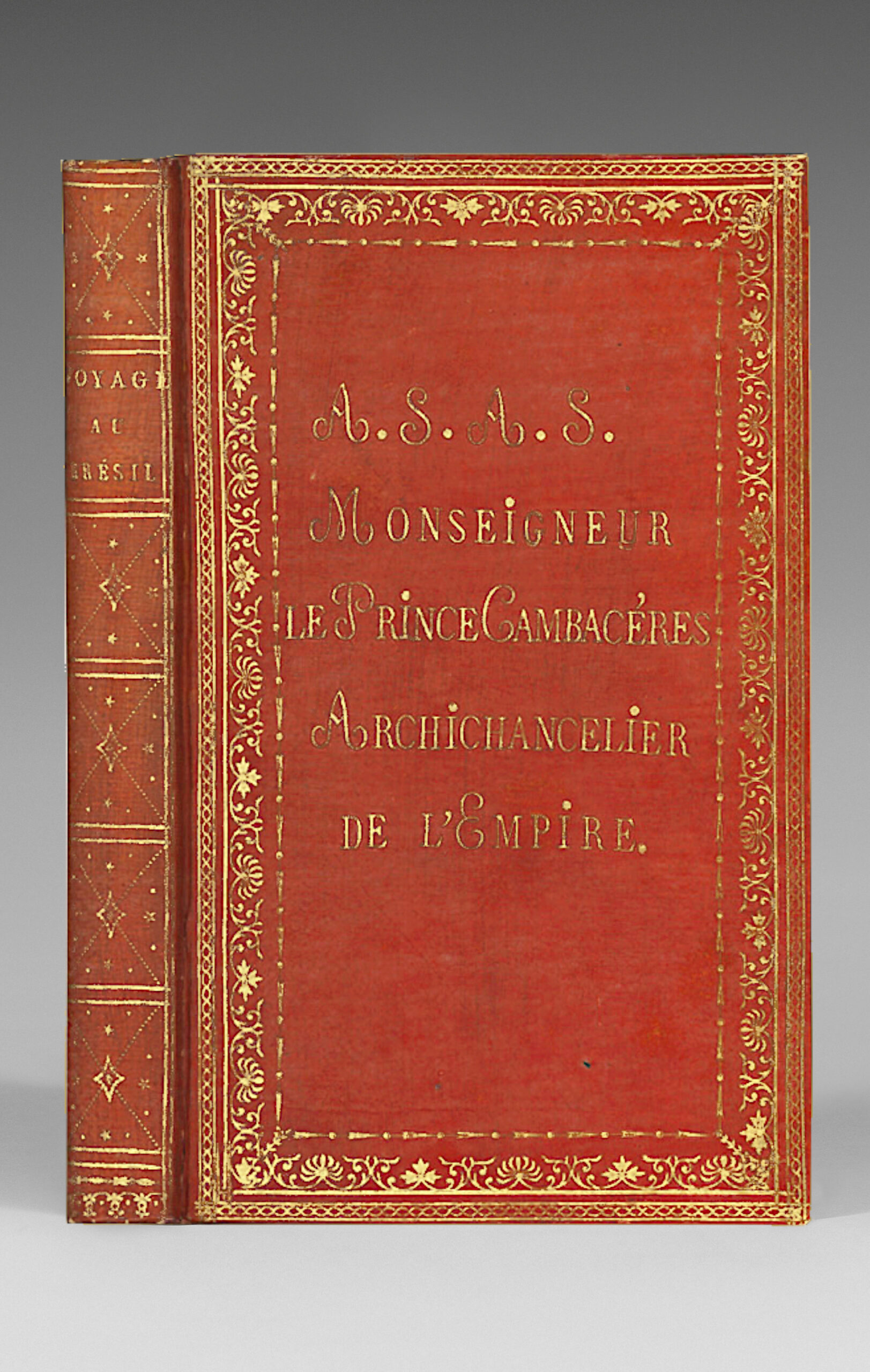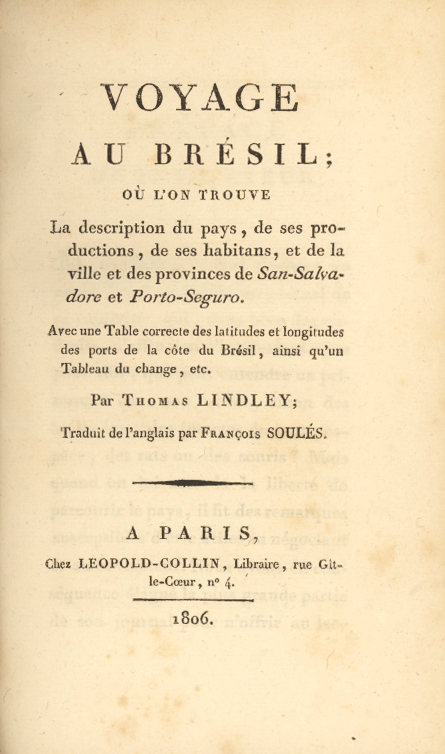Paris, Léopold, Collin, 1806.
8vo of xiv pp., 215 pp., (1) p. Red morocco cardboard, large set of gilt borders around the covers, mention in gilt letters: A S.A.S Monseigneur le Prince Cambacéres Archichancelier de l’Empire, flat spine decorated with gilt fillets and flowers with gilt stars and dotted lines, gilt inner border, gilt edges. Contemporary binding.
198 x 122 mm.
First French edition of this journey to Brazil offered by the author to Cambaceres.
Borba de Moraes, I, 485; Garraux 170; Leclerc 1609; Rodrigues 1416, Sabin 41296.
This translation is the work of François Soulès.
This first French edition is rarer than the first English according to Borba de Moraes.
In 1801, Lindley, an English merchant, was in South Africa with goods whose price had fallen sharply after the signing of the Peace of Lunéville. He decided to try and sell them in Brazil. But he was arrested for smuggling and imprisoned for a year in Sao Salvador de Bahia despite all his protests. As the conditions of imprisonment were gradually relaxed, he was allowed out during the day. He took the opportunity to visit the city and his account is full of details about it and its inhabitants. It is the first description of Brazil by an Englishman in the 19th century. After 11 months in prison, he managed to escape via Portugal to England.
A very attractive copy offered by the author to Cambacéres and bearing this dedication in gilt letters on the upper cover: A S.A.S Monseigneur le Prince Cambacéres Archichancelier de l’Empire.
Jean-Jacques-Régis de Cambaceres is a French jurisconsult and statesman, born on October 18, 1753 in Montpellier and died on March 8, 1824 in Paris.
Coming from a family of magistrates belonging to the old Montpellier nobility, he has a relatively poor childhood. After graduating in law, he began a career as a lawyer and councilor at the Court of Accounts of Languedoc and entered politics in the early days of the French Revolution. President of the criminal court of Herault in 1791, he is elected deputy with the National Convention the following year. From then on, Cambaceres occupies positions of power during the major part of his life. Member of the Committee of public salvation between 1794 and 1795, president of the Council of the Five Hundred in 1796 then minister of Justice in 1799, he is Second consul after the coup d’état of the 18 Brumaire of Napoleon Bonaparte and attends the coronation of this one in 1804. Appointed Arch-Chancellor of the Empire, he was for nearly ten years the second most important person in the State: the Emperor delegated to him the presidency of the councils and the sessions of the Senate during his absence.
Elected to the French Academy and member of the Institute, he was also a prominent figure in French Freemasonry and participated in its revival after the proclamation of the Empire. Supreme Chief of the French Rite, he was Deputy Grand Master of the Grand Orient de France after the withdrawal of Prince Louis Bonaparte in 1805 and remained so until the end of the Empire. He was also Grand Commander of the Supreme Council of the Scottish Rite and held several other Masonic offices.
Greedy for money and power, he built up an immense fortune thanks to his entrepreneurial spirit and the Emperor’s favours. The Hôtel Molé, which he acquired in 1808, became one of the most beautiful palaces in Paris and the receptions he organized were renowned for their splendor and the quality of the food served. A well-informed gourmet, lover of luxury and decoration, he was entrusted with a representative role by Napoleon I with the aim of affirming the power of the Empire and anchoring it in the secular traditions of France. He left power in 1815 after the fall of the Emperor and went into exile for a time in Brussels. Returning to Paris at the end of 1818, he spent the last years of his life away from power.



